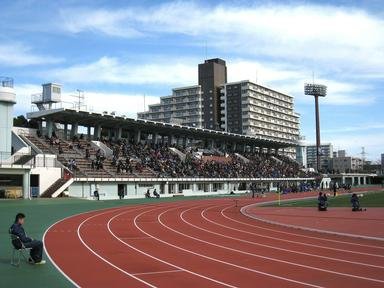Quiz Answer Key and Fun Facts
1. "I don't know why I run so fast. I just run."
Olympic champion Wilma Rudolph was born on June 23, 1940 in Clarksville, Tennessee. Which of these statements about her birth is true?
2. "I loved the feeling of freedom in running, the fresh air, the feeling that the only person I'm competing with is me."
The hospital in Rudolph's hometown refused to care for Wilma because she was African-American.
3. "My doctor told me I would never walk again. My mother told me I would. I believed my mother."
When Wilma Rudolph was just four years old, she was stricken with what disease, which also crippled President Franklin Roosevelt?
4. "By the time I was 12 I was challenging every boy in our neighborhood at running, jumping, everything."
Wilma Rudolph demonstrated remarkable athletic ability in her youth. She played what sport in junior high and high school?
5. "No matter what accomplishments you make, somebody helps you."
Legendary coach Ed Temple noticed Wilma Rudolph and recruited her for his track team at Tennessee State University. What was the name of the famous women's track team?
6. "I ran and ran and ran every day, and I acquired this sense of determination, this sense of spirit that I would never, never give up, no matter what else happened."
In 1956, at only 16, Wilma entered her first Olympics and won her first medal. Where were the games held?
7. "The feeling of accomplishment welled up inside of me, three Olympic gold medals. I knew that was something nobody could ever take away from me, ever."
At the 1960 Rome Olympics, Wilma Rudolph became the first woman to win three Gold Medals. The three gold events are listed below; which is the odd one out?
8. "When the sun is shining I can do anything; no mountain is too high, no trouble too difficult to overcome."
To whom did Wilma Rudolph pay tribute following her Olympic victories?
9. "I believe in me more than anything in this world."
In the 1960s Wilma Rudolph became the first woman to win several sporting awards. Which one is NOT one of these firsts?
10. "When I was going through my transition of being famous, I tried to ask God, why was I here? What was my purpose? Surely, it wasn't just to win three gold medals. There has to be more to this life than that."
Her hometown of Clarksville, Tennessee gave Olympic track star Wilma Rudolph a homecoming parade. What was unique about this parade?
11. "What do you do after you are world famous at 19 or 20 and you have sat with prime ministers, kings and queens, the pope? Do you go back home and take a job? What do you do to keep your sanity? You come back to the real world."
What occupation did gold-medalist Wilma Rudolph initially pursue after retiring from competition?
12. "[Black women] don't go to work to find fulfillment, or adventure, or glamour and romance.... Black women work out of necessity."
Having seen the world, Wilma Rudolph was too restless to stay in one place. She took up a number of positions around the country. Which is not a job she held?
13. "Sometimes it takes years to really grasp what has happened to your life."
Wilma Rudolph wrote an autobiography, published in 1977, that NBC adapted into a telemovie. Who played track superstar Wilma Rudolph as an adult?
14. "The triumph can't be had without the struggle."
Wilma Rudolph created a foundation after her experience with "Operation Outreach", a program of athletic outreach established in 1967 by which Vice-President of the USA?
15. "Never underestimate the power of dreams and the influence of the human spirit. We are all the same in this notion: The potential for greatness lives within each of us."
Wilma Rudolph passed away in 1994. What was the cause of death?
Source: Author
gracious1
This quiz was reviewed by FunTrivia editor
stuthehistoryguy before going online.
Any errors found in FunTrivia content are routinely corrected through our feedback system.
